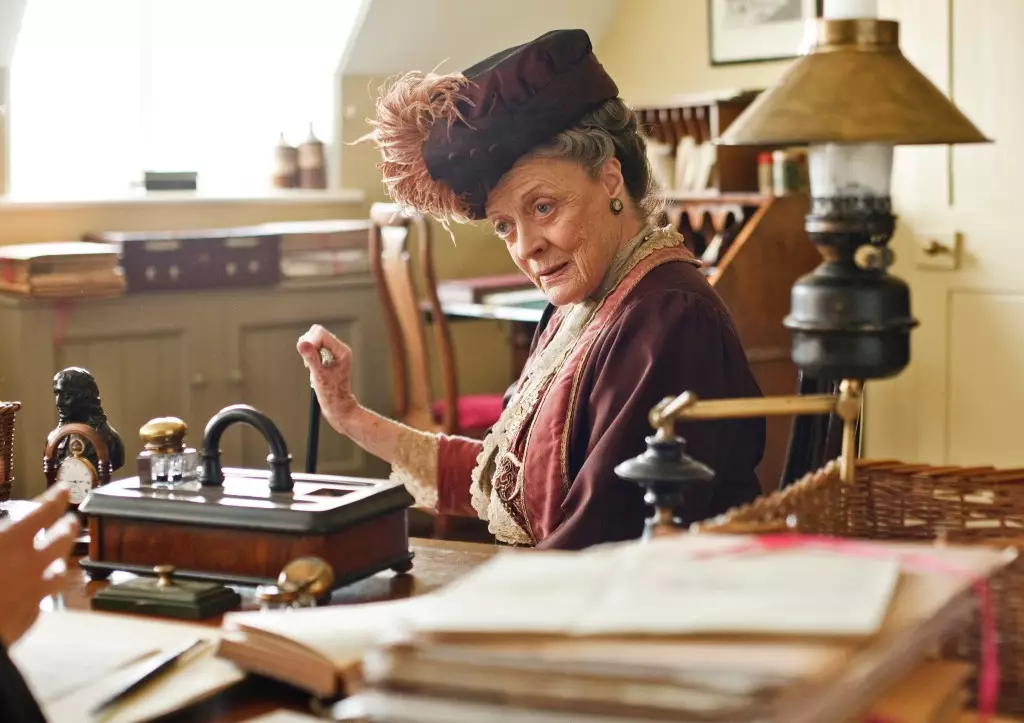The entertainment world is mourning the loss of the iconic actress Maggie Smith, who passed away at the age of 89. Smith, celebrated for her unparalleled acting prowess, is perhaps best known for her role as Violet Crawley, the formidable Dowager Countess of Grantham, in the British period drama series **Downton Abbey**. Her portrayal captivated audiences for six seasons and was further immortalized in two films that continued the saga of the Crawley family. Notably, her character met her end in **Downton Abbey: A New Era**, marking a poignant farewell that echoed the legacy of an actress who truly defined her craft.
As people reflect on Smith’s illustrious career, one cannot ignore the profound impact she made on both the screen and her colleagues. From her ability to traverse the nuances of humor and heartbreak to her immersive performances, she left an indelible mark on television and film. Julian Fellowes, the creator of **Downton Abbey**, eloquently encapsulated the reverence with which Smith was regarded, stating that working with her was a great privilege. His remarks underscore not just her talent but the joy she brought to those around her—a sentiment echoed by many of her co-stars.
The tributes pouring in reveal the depth of admiration that Smith commanded among her peers. Gareth Neame, Executive Producer of the **Downton Abbey** series and films, expressed his deep connections and respect for Smith, referring to her as one of the greatest actors of her generation. His comments highlight the multifaceted nature of Smith’s artistry—the capability to blend comedy with tragedy seamlessly. Such sentiments are more than just accolades; they paint a picture of an actress who inspired both camaraderie and respect among her castmates.
Michelle Dockery, who played Lady Mary Crawley, shared her own reflection, acknowledging Smith’s singularity and influence. Her description of Smith as a “maverick” points to the distinctive flair that characterized Smith’s performances. Similarly, Hugh Bonneville, who portrayed Smith’s on-screen son, the Earl of Grantham, remarked on her “sharp eye, sharp wit, and formidable talent.” These personal accounts reveal the authenticity of their experiences working alongside her, providing insight into the woman behind the character.
Maggie Smith’s legacy extends beyond her characters; it speaks to the heart of what it means to be an artist. Her performance as Jean Brodie in **The Prime of Miss Jean Brodie** remains a standout moment in film history, earning her an Academy Award and setting the stage for the many accolades that followed. Neame’s poignant recollection of his grandfather directing her in that film serves as a reminder of how deeply intertwined personal and professional relationships can be in the industry.
With a career spanning several decades, Smith’s roles were not merely performances; they were masterclasses in acting. From theatre to film to television, her ability to bring complex characters to life garnered her a devoted global audience. The essence of her characters, including Violet Crawley and Jean Brodie, resonates because they encapsulate the struggles, triumphs, and humanity that define all great storytelling.
As the curtains draw on Maggie Smith’s remarkable journey, her contributions will continue to influence generations of actors and filmmakers. The loss of such a monumental figure is felt acutely—she was not merely an actress; she was a touchstone in the world of performance. As Dan Stevens succinctly put it, she was “one of The Greats.”
In a landscape often filled with fleeting fame, Maggie Smith’s artistry serves as a compelling reminder of the power and permanence of talent and dedication. In a world that moves swiftly, her legacy will remain a bedrock for those who aspire to create, resonate, and inspire. We mourn her death but celebrate her life, ensuring that the impact of her talent will never be forgotten.

